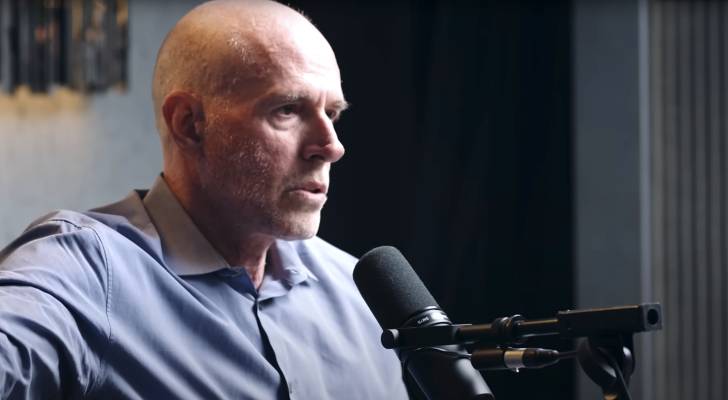
We adhere to strict standards of editorial integrity to help you make decisions with confidence. Some or all links contained within this article are paid links.
Investing in real estate may seem like an attractive prospect, but not everyone agrees on whether it’s a good investment for the average American.
Some see it as the pinnacle of wealth generation, while others believe real estate requires too much upfront capital to invest and too much ongoing capital for property management and maintenance.
“The brightest people in real estate will say if you really account for maintenance and upkeep, then real estate has not outperformed other asset classes,” New York University professor and finance expert Scott Galloway said on Steven Bartlett’s “The Diary of a CEO” podcast on July 11.
But that hasn’t stopped the renowned entrepreneur from making “good money” from real estate investing and enjoying the process.
Here’s why Galloway likes real estate as an asset class — and how you can get your piece of the pie.
Tax advantages
Galloway described real estate as “the most tax-advantaged” investment you can make in the U.S.
“There are very few asset classes you can lever up four-to-one,” he said. “A 20% downpayment? I can’t buy $100 of Apple stock for $20! It’s huge leverage [and] the interest on that is tax deductible.”
Mortgage interest, property taxes and certain maintenance expenses are often tax deductible, helping homeowners or investors to reduce their overall tax liability. Also, if you hold onto your primary home for at least two years, you may qualify for capital gains tax exemptions.
Even if the mortgage rates are somewhat high ahead of the holiday season, you can benefit from getting a mortgage now.
If you are thinking about buying a house, Mortgage Research Center can help you determine the best mortgage rates offered by vetted lenders near you. All you have to do is enter some basic information about your finances and desired property type, and Mortgage Research Center will automatically match you with a lender with the right mortgage offer for you.
Despite the potential tax breaks, a mortgage is a huge undertaking — you need to have a clear picture of your finances before you delve into it. A financial advisor can help you out.
Advisor.com connects you with vetted fiduciary financial advisors near you. All you have to do is answer a few simple questions about your finances, and Adivsor.com matches you with a short list of certified experts to choose from.
You can then set up an introductory meeting with no obligation to hire.
Build your own real estate portfolio
Anyone with the time and means can build a real estate portfolio. But you do have to be somewhat strategic about where you invest in property.
Steven Bartlett shared some advice he received from his brother during the podcast: “If everybody is playing the game, the returns probably aren’t great from it.”
Galloway agreed.
“It goes back to sex appeal — too much capital going in,” he said. “When everyone’s trying to buy homes in a certain area, that usually means it’s probably getting overvalued and, like any other asset class, it can lose money.”
But even up against tricky market dynamics, Galloway is still a fan of investing in real estate. “The reason I like it is because it is a form of forced savings,” he told Bartlett. Galloway noted much of the savings for baby boomers is tied to the equity in their homes.
Crowdfunding
Galloway’s insights into establishing a passive income stream through real estate might seem old school.
“Find a nice home or a rental unit that you can rent out or upgrade — maybe you’re handy,” he said. “Do that every few years and take advantage of the tax deduction and then roll into something bigger.”
But it’s easier said than done. Not only do you have to worry about downpayment and monthly mortgage payments, but you also have to remember the headaches that come with renting out your investment property.
Crowdfunding platforms like Arrived can help you avoid this. Backed by prominent investors, including Jeff Bezos, Arrived lets you passively invest in residential properties and vacation rentals for as little as $100.
Your money can grow in two ways with Arrived. First, you can potentially receive monthly distributions based on the rental income earned by the property you invested in. Second, as the value of the home appreciates, you are eligible for capital gains payouts as well.
If you want to take it one step further, you can try investing in commercial properties. While commercial real estate has definitely taken a hit post-pandemic, necessity-backed properties like grocery chains and health care properties have held strong.
Accredited investors can start investing in commercial real estate through First National Realty Partners (FNRP). You can own a share of institutional quality grocery-anchored properties leased to brands like Walmart, CVS, and Whole Foods — without having to worry about the paperwork.
FNRP distributes any positive cash flows quarterly to its investors, meaning you can set up a passive income stream without having to stress about the hassles of direct property ownership.
This article provides information only and should not be construed as advice. It is provided without warranty of any kind.